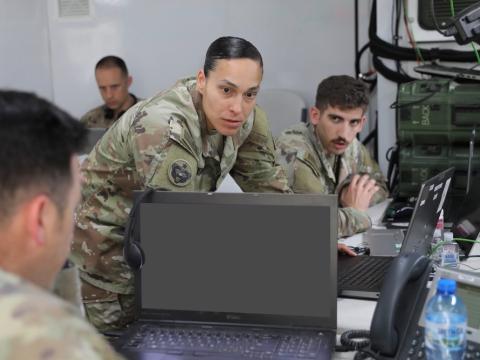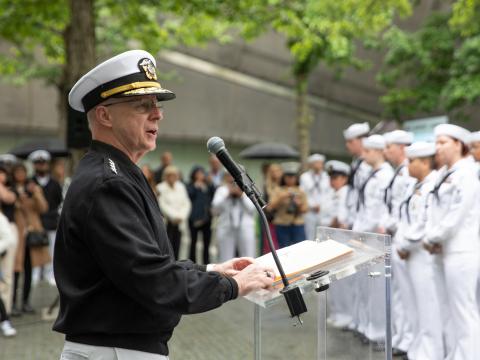Experts Debate Role of Demographics and Religion in Future Conflicts
Members of the Joint Warfighting Conference's first panel described with great fervor what they believe will be the influences on future conflicts. From demographics to religion, outspoken panelists, who at times disagreed with each other, listed a number of variables that are likely to affect how joint military commanders lead their troops.
Members of the Joint Warfighting Conference's first panel described with great fervor what they believe will be the influences on future conflicts. From demographics to religion, outspoken panelists, who at times disagreed with each other, listed a number of variables that are likely to affect how joint military commanders lead their troops.
Pointing to world demographics as one influence on the future, Dr. Thomas G. Mahnken, former deputy assistant secretary of defense for policy planning, explained that while the population of the U.S. continues to grow with an influx of immigrants, population numbers in other nations is decreasing. In addition, the expected life span of citizens of countries such as Russia is much lower than that of U.S. citizens. These shift in numbers may impact future coalition partnerships, he stated.
In addition, Mahnken noted that another shift is occurring in the importance religion versus nationality plays in devotion to a cause. Today, clashes are taking place not only because nationalities differ but also based on religious convictions. This is likely to continue to affect future conflicts, he stated.
Carmen Medina, assistant deputy director for intelligence, CIA, proposed that the line between war and criminality is likely to continue to blur. One activity that will influence this confluence is the ambiguity in military action that can occur because of how quickly news spreads about military operations and their effects. "If as a commander you're not competing with that story immediately, you're sunk," she said.
Medina also pointed out that the near-end result of conflicts has changed and will continue to change in the future. While in past wars nations fought until negotiations took place and a resolution agreed upon, ending conflicts in the future is much more difficult when an enemy does not believe that negotiation is acceptable.
Perhaps one of the most forthright panelists was Ralph Peters, a retired U.S. Army officer, author and New York Post columnist. He opened his contribution to the panel discussion by stating that the U.S. government is not comfortable with discussing religion as a profoundly disruptive and inspiring force today. This is a mistake, he opined, because religious devotion has outlasted all nations with the exception of the U.S. Globalization has led many individuals to wonder "Who am I?" Peters said, and while manmade ideologies such as Nazism have all but disappeared, blood and belief are still tightly tied together. "This makes a huge difference in how we fight," Peters stated.
According to Peters, one problem that deeply affects the world today is the dysfunctional borders between nations that Europeans determined hundreds of years ago. Rather than examining borders, military leaders must turn their attention to history and accept that members of all monotheist religions have caused wars and deaths. "When their backs are against the wall, they will fight...We are not exceptions to history," he stated.




Comments